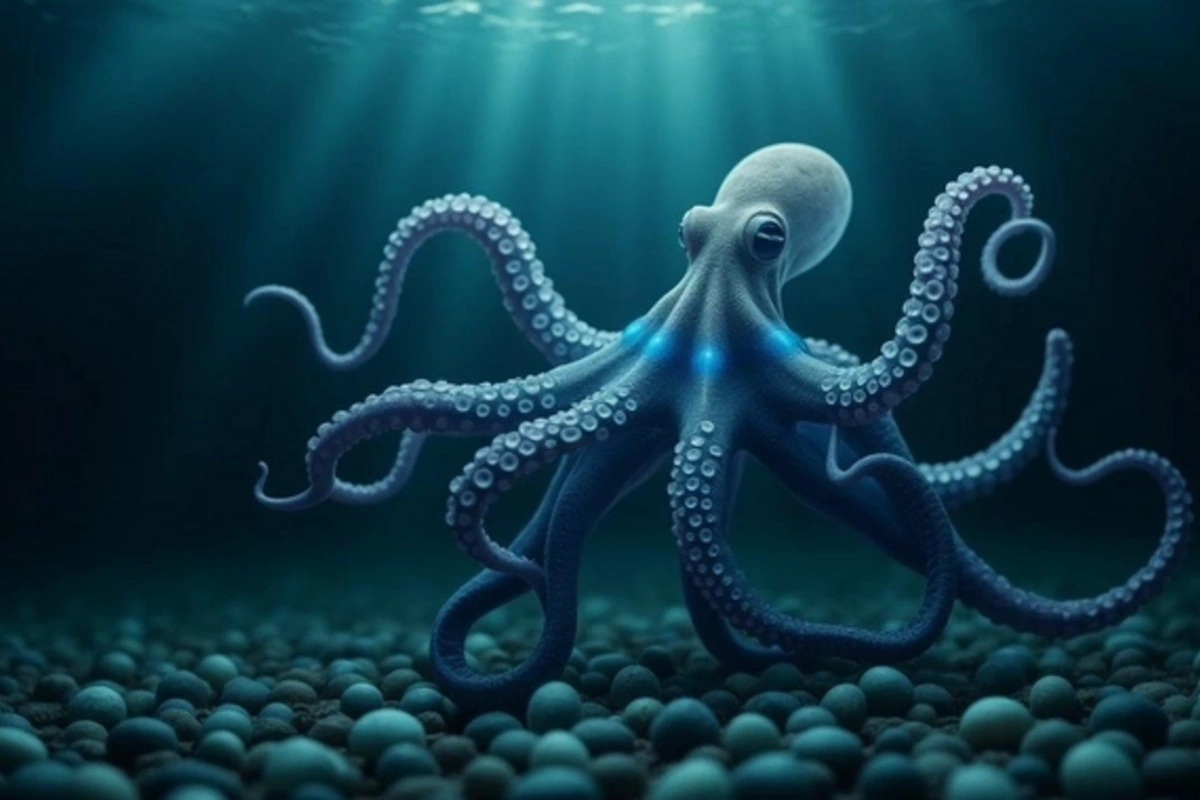21 May , 12:38
0

The Riddle of Three Hearts: Why Octopuses Are Doomed to a Short Life After Reproduction
Octopuses are true wonders of nature. They have three hearts, blue blood, eight arms and a brain distributed throughout their body. But their life is overshadowed by one dramatic feature: after reproduction, octopuses die. These creatures live brightly but briefly, leaving behind many questions. Let's examine why they have such unusual physiology and why their life is so fleeting.
Octopuses have a unique circulatory system. They have two branchial hearts that pump blood through the gills to saturate it with oxygen, and one systemic heart that distributes the enriched blood throughout the body. This system is necessary due to the peculiarities of their blood. Unlike human blood, which is red due to iron-based hemoglobin, octopus blood is blue thanks to copper-containing hemocyanin. Hemocyanin is less efficient at transporting oxygen, especially in warm water, so octopuses require powerful circulation provided by three hearts.
Interestingly, the systemic heart stops when an octopus swims. This helps conserve energy but makes swimming energy-intensive for them. Therefore, octopuses prefer to crawl along the bottom rather than actively swim. Imagine if your heart turned off while running - octopuses literally live with this feature.
Octopuses are a vivid example of semelparity, when an organism reproduces only once in its lifetime and then dies. After mating, males quickly experience nervous system deterioration: they lose interest in food, stop hiding from predators, and soon die. Females live slightly longer, guarding their egg clutch. They don't eat for weeks until they become exhausted and die.
This process is triggered by the optic gland - an analog of the human pituitary gland. It activates a hormonal "self-destruction mode." Scientists have experimented with removing this gland, and octopuses lived longer but lost interest in reproduction and caring for offspring. Nature seems to have programmed a timer in them to limit their numbers in the ocean.
Octopuses are among the most intelligent invertebrates. They have up to 500 million neurons (like a dog), with most located in their tentacles. They can solve puzzles, open jars, distinguish between people, and even modify their RNA for adaptation. Their memory allows them to learn, navigate, and make decisions depending on the situation.
But their life is incredibly short. Most species live only 1-2 years, and even giant octopuses rarely live to 5 years. Their biology is like rock and roll: bright, intense, but quick.
Octopuses are a paradox of nature. The smartest invertebrates on the planet possess complex physiology and outstanding intelligence, but their life is doomed to be short. Perhaps nature made them this way so they wouldn't dominate the oceans. Their three hearts, blue blood, and unique mind make them some of the most amazing creatures, but their fleeting life reminds us that even genius has its price.